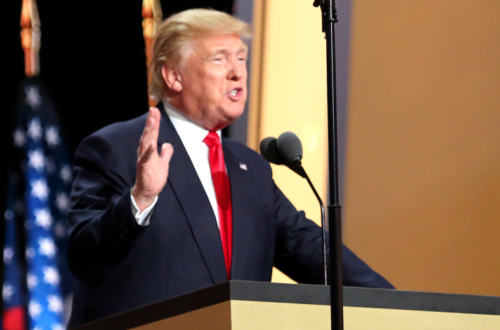If you’re a teenager, one glance at your phone screen time might reveal TikTok as one of your most used apps.
With over 1 billion users as of 2023, the app has quickly become a revolving door of attention-grabbing videos and pop-culture updates. But make no mistake — TikTok has carved itself a new role in the social media sphere, and it has already revolutionized Florida’s political climate.
Political pivot
TikTok is unique with its easy-to-make video process, rapid content turnover rate and especially large youth audience. Users have adopted a culture of candor, which makes the app well-suited for spreading news or increasing momentum for social issues.
The earliest example of this — perhaps the beginning of the app’s political pivot — came shortly after the murder of George Floyd in May 2020. Millions of users went online to express their heartache, share protest footage and help crowdsource for racial justice and legal aid organizations. Gen Z users, many of whom couldn’t donate or attend marches, participated by reposting donation links or petitioning their state representatives.
Internet activism became more accessible than ever, and Gen Z users built an impressive rap sheet. Thousands registered for Trump’s Tulsa, Oklahoma, rally but never showed. Users scoured Jan. 6 Capitol riot footage to report discriminatory participants. Recently, they’ve generated millions of signatures and letters condemning the Willow Project, a massive oil-drilling development in Alaska, which was green-lit by President Joe Biden’s administration.
Gen Z has undoubtedly turned TikTok into a cannon of change and social awareness, and it has forced elected officials to keep up and use the platform as a campaign tool. Some Florida representatives have begun to capitalize on the app’s reach, raising the bar for politicians everywhere.
An underestimated tool
When someone imagines a U.S. representative, a TikTok creator with 1.5 million followers isn’t typically a characteristic that immediately comes to mind. But U.S. Rep. Jeff Jackson, D-North Carolina, is just that, covering topics like corruption, the debt ceiling and even TikTok’s congressional hearing.
Jackson keeps his videos short but informative, and he appeals to users who want to learn about the latest political happenings without sleuthing through the news. Many members of Gen Z appreciate the representative’s effort to communicate in a way they understand.
But Jackson’s popularity also sends a message to other politicians on how to appeal to youth: Transparency is essential in building a relationship with young voters.
Getting in touch
Florida House Rep. Anna V. Eskamani, D-Orlando, says she understands this.
“Social media has always played a very important role in my political outreach and constituent services,” she said. “Like any tool, social media can be used for good or bad — and we try to utilize it as a source of information and to break down complex issues in easy to understand platforms.”
Her TikTok account is a mixture of educational messages and clips of her work on the Florida House floor, where she debates bills, confronts representatives or promotes bipartisan amendments. It’s an extension of her brand but also an effective bridge between her team and Gen Z, amassing 58.3k followers since she started in the account in 2020.
“I started our TikTok account at first to just see what was happening on TikTok, and then started making videos to help connect to our community and to Floridians as a whole,” Eskamani said. “Information is powerful and we use multiple platforms to keep our community informed and inspire folks to take action with us.”
This two-pronged approach raises the bar for how transparent representatives should be when updating constituents. Eskamani makes it one of her goals to describe new House bills or outline how to contact local representatives to bridge the gap in voter participation.
The former model of politics may be getting a facelift in the coming years — young voters are no longer gravitating toward traditional ways of interacting with politicians. They’re calling on unmediated information and a clear effort to communicate directly with constituents through social media, like Jackson and Eskamani.
Check out other recent articles from the Florida Political Review here.
Featured image: Revolution Youth taken on March 18, 2007. (Unmodified photo by Fen Labalme used under a Creative Commons license. https://bit.ly/41CCk7X)





